Thank you for the mention, Dr. Jayne — we appreciate the callout, the kind words and learning more about the…
News 11/16/11
Top News

The AMA’s House of Delegates votes to “work vigorously to stop implementation” of ICD-10, which it says will create “significant burdens” on the practice of medicine with no direct benefit to the care of individual patients. AMA President Peter W. Camel, MD also notes that physicians are concentrating on EMR implementation and the switch to ICD-10 would “add administrative expense and create unnecessary workflow disruptions.”
Reader Comments
![]() From Big Scout: “Re: NextGen User meeting. Kicked off today with a multimedia presentation including keynote speaker John Foley, former lead solo pilot for the Blue Angels. Some of the key themes so far: Meaningful Use preparation, ICD-10, and high performance teams. Farzad Mostashari is also in attendance.” We love the “from the field” reporting, so thanks for sharing. Big Scout is one of over 4,200 participants at this week’s NextGen user meeting in Las Vegas.
From Big Scout: “Re: NextGen User meeting. Kicked off today with a multimedia presentation including keynote speaker John Foley, former lead solo pilot for the Blue Angels. Some of the key themes so far: Meaningful Use preparation, ICD-10, and high performance teams. Farzad Mostashari is also in attendance.” We love the “from the field” reporting, so thanks for sharing. Big Scout is one of over 4,200 participants at this week’s NextGen user meeting in Las Vegas.
![]() From Unibroue: “Re: HITECH mess. One of my clients just got rejected for her ARRA money because Kaiser claimed her payment earlier in the year. She had supposedly signed a contract with them while still in medical school, though she never actually went to work for them. She has no idea how it happened, but expects a nightmare to undo it. The feds don’t even provide any kind of contact information and have just advised her to ‘get in touch with Kaiser Foundation.’ A billion-dollar conglomerate has her $22K and she’s not happy.” Maybe readers have suggestions on how to resolve. Good luck.
From Unibroue: “Re: HITECH mess. One of my clients just got rejected for her ARRA money because Kaiser claimed her payment earlier in the year. She had supposedly signed a contract with them while still in medical school, though she never actually went to work for them. She has no idea how it happened, but expects a nightmare to undo it. The feds don’t even provide any kind of contact information and have just advised her to ‘get in touch with Kaiser Foundation.’ A billion-dollar conglomerate has her $22K and she’s not happy.” Maybe readers have suggestions on how to resolve. Good luck.
![]() From Not in Kansas: “Re: NHS. The National Health System is a thing to be seen. Of course on the way to seeing it, you have to deal with impossible parking, non-working lifts, a large bucket catching the drips from the ceiling, and hazardous waste parked in the corridor.” Not in Kansas reports that she is across the pond assisting a relative who is having surgery. While some American patients might envy the cost of NHS care (it’s free), the US model does, for the most part, afford us an abundance of well-maintained facilities and other niceties.
From Not in Kansas: “Re: NHS. The National Health System is a thing to be seen. Of course on the way to seeing it, you have to deal with impossible parking, non-working lifts, a large bucket catching the drips from the ceiling, and hazardous waste parked in the corridor.” Not in Kansas reports that she is across the pond assisting a relative who is having surgery. While some American patients might envy the cost of NHS care (it’s free), the US model does, for the most part, afford us an abundance of well-maintained facilities and other niceties.
![]() From Non-Sequitur: “Re: HIStalk quoted. I just loved the sweet irony of seeing you quoted in the pages of one of those magazines you described, which ran an article on the Colorado HIE cost challenges saying the story was ‘plucked from the HIStalk web site.’” I thought that was darned nice of Health Data Management (or perhaps more accurately, reporter Joe Goedert,) for hat-tipping HIStalk instead of just following my link and pretending they found that story on their own. Joe’s one of the good writers who learned the players and the lingo, sticks to reporting the news objectively and skillfully, and doesn’t confuse being an sideline observer with being a participant who’s qualified to render advice or provide expert editorial opinion (“I’m not a doctor, but I play one on TV.”) The first thing I do when I read an editorial or self-assured comment telling providers or vendors what they should or think is check LinkedIn for the author’s education and experience. I’m usually not impressed.
From Non-Sequitur: “Re: HIStalk quoted. I just loved the sweet irony of seeing you quoted in the pages of one of those magazines you described, which ran an article on the Colorado HIE cost challenges saying the story was ‘plucked from the HIStalk web site.’” I thought that was darned nice of Health Data Management (or perhaps more accurately, reporter Joe Goedert,) for hat-tipping HIStalk instead of just following my link and pretending they found that story on their own. Joe’s one of the good writers who learned the players and the lingo, sticks to reporting the news objectively and skillfully, and doesn’t confuse being an sideline observer with being a participant who’s qualified to render advice or provide expert editorial opinion (“I’m not a doctor, but I play one on TV.”) The first thing I do when I read an editorial or self-assured comment telling providers or vendors what they should or think is check LinkedIn for the author’s education and experience. I’m usually not impressed.
![]() From Olly Oxen: “Re: Cleveland Clinic. A healthcare market research report says Cleveland Clinic has exceeded Epic’s capabilities for data analysis and revenue cycle tools that will be needed to manage populations in an ACO-type model. Executives there are apparently disappointed that Epic isn’t interested in helping them in those areas, forcing the clinic to bring in other vendors after paying all that money for Epic.” Unverified, but OO provided an excerpt from the report.
From Olly Oxen: “Re: Cleveland Clinic. A healthcare market research report says Cleveland Clinic has exceeded Epic’s capabilities for data analysis and revenue cycle tools that will be needed to manage populations in an ACO-type model. Executives there are apparently disappointed that Epic isn’t interested in helping them in those areas, forcing the clinic to bring in other vendors after paying all that money for Epic.” Unverified, but OO provided an excerpt from the report.
![]() From Janga: “Re: NIST’s draft on EHR usability testing. HIMSS provides their commentary.” The HIMSS response expresses concern at having actual usability experts doing the testing, favoring instead “inclusion of individuals with practical clinical experience.” I don’t agree – the document clearly identified steps in which subject matter experts would be involved to provide subjective analysis and comments, but real usability testing is product-agnostic (are menus labeled clearly, how many clicks to complete a task, etc.) HIMSS also thinks testing conditions should reflect real-life interruptions and competing workflow, which sounds nice on paper but isn’t really how usability testing is done (remembering again that usability is a profession with its own literature and standards, not just a bunch of nerds deciding arbitrarily how products should be tested.) Having said that, though, I think HIMSS was admirably restrained in not nitpicking the draft to death and trying to insert itself into the process (like it did for EHR certification.) So I’ll moderate my comments: HIMSS brings up some industry-specific points worth considering, although usability experts and NIST have way more expertise and thus should have the final say.
From Janga: “Re: NIST’s draft on EHR usability testing. HIMSS provides their commentary.” The HIMSS response expresses concern at having actual usability experts doing the testing, favoring instead “inclusion of individuals with practical clinical experience.” I don’t agree – the document clearly identified steps in which subject matter experts would be involved to provide subjective analysis and comments, but real usability testing is product-agnostic (are menus labeled clearly, how many clicks to complete a task, etc.) HIMSS also thinks testing conditions should reflect real-life interruptions and competing workflow, which sounds nice on paper but isn’t really how usability testing is done (remembering again that usability is a profession with its own literature and standards, not just a bunch of nerds deciding arbitrarily how products should be tested.) Having said that, though, I think HIMSS was admirably restrained in not nitpicking the draft to death and trying to insert itself into the process (like it did for EHR certification.) So I’ll moderate my comments: HIMSS brings up some industry-specific points worth considering, although usability experts and NIST have way more expertise and thus should have the final say.
HIStalk Announcements and Requests

![]() Welcome to new HIStalk Platinum Sponsor NextGate, whose MatchMetrix master index solution manages over 50 million unique entities (patients, providers, terminology) worldwide. The Pasadena, CA-based company was founded by the technical brains behind one of my favorite products of all time, the STC Datagate integration engine (we’re talking mid-1990s here that I was involved in buying it for my health system), arguably the first generation of what eventually became vendor-independent interoperability solutions. The NextGate folks are serious technologists with expertise in EMPI, enterprise registry, enterprise application integration, and service oriented architecture, all vital for presenting consolidated data views and exchanging information. MatchMetrix gets high KLAS scores; is used by both providers (HIEs and health organizations) as well as vendor partners; and offers low TCO, fast implementation, and straightforward management. For those of us who appreciate high-achieving geeks, note that every single member of NextGate’s leadership team has earned their technical stripes. Thanks to NextGate for supporting HIStalk.
Welcome to new HIStalk Platinum Sponsor NextGate, whose MatchMetrix master index solution manages over 50 million unique entities (patients, providers, terminology) worldwide. The Pasadena, CA-based company was founded by the technical brains behind one of my favorite products of all time, the STC Datagate integration engine (we’re talking mid-1990s here that I was involved in buying it for my health system), arguably the first generation of what eventually became vendor-independent interoperability solutions. The NextGate folks are serious technologists with expertise in EMPI, enterprise registry, enterprise application integration, and service oriented architecture, all vital for presenting consolidated data views and exchanging information. MatchMetrix gets high KLAS scores; is used by both providers (HIEs and health organizations) as well as vendor partners; and offers low TCO, fast implementation, and straightforward management. For those of us who appreciate high-achieving geeks, note that every single member of NextGate’s leadership team has earned their technical stripes. Thanks to NextGate for supporting HIStalk.
Acquisitions, Funding, Business, and Stock
simplifyMD secures $4.5 million in new capital and names Michael Brozino as president and board member. He was previously with McKesson and the McKesson-acquired A.L.I.
PHR vendor MMRGlobal reports a Q3 net loss of $2.1 million, compared to last year’s loss of $1.7 million. Revenues were $352K compared to last year’s $270K.
Nashville-based critical access hospital software vendor Custom Software Systems, Inc. changes its name to CSS Health Technologies. It sells the ChartSmart EMR.
Healthcare learning and research solutions vendor HealthStream opens the public offering of 3,250,000 shares of its common stock, with the sole book-running manager being William Blair & Company, LLC. Proceeds could reach more than $50 million.
Sales
Avalon Health Care Management selects HealthMEDX Vision as its enterprise-wide solution for its 39 long-term care facilities.
Alabama Medicaid and the state of Alabama partner with Thomson Reuters to build the infrastructure for a statewide HIE known as One Health Record.
Barnabas Health (NJ) selects the MedAptus Professional Intelligent Charge Capture solution for its 4,500 physicians.
Healthcare Access San Antonio (TX) chooses Medicity’s HIE technology to connect its providers and area hospitals, initially using the iNexx platform to create a 22-county referral network. HASA is one of only two regional grant recipients to qualify for state funding to start implementing an HIE.
Florida Medical Clinic selects Humedica MinedShare for managing its patient population and improving clinical outcomes.
Catholic Healthcare West signs a three-year, $4.3 million deal to implement AirStrip OB remote fetal monitoring on mobile devices.
University Medical Center (NV) gets county approval to buy an unnamed $31 million clinical system (presumably McKesson.) The hospital said in July that it couldn’t come up with the $60 million needed and had only $25 million to spend with McKesson, its vendor of choice.
![]() The board of Edward Hospital (IL) voted Monday evening to approve the purchase of Epic as its core system along with Lawson for ERP, VP/CIO Bobbie Byrne MD, MBA tells me. She says, “I have a great deal of respect for many of the vendors in our industry and I was impressed with several of the proposals we received. Epic was the right choice for Edward because of the robust integrated products for clinical and revenue cycle across both hospital and physician office settings. One patient, one record, one bill …” You may remember Bobbie from her four years with Eclipsys as SVP of clinical solutions.
The board of Edward Hospital (IL) voted Monday evening to approve the purchase of Epic as its core system along with Lawson for ERP, VP/CIO Bobbie Byrne MD, MBA tells me. She says, “I have a great deal of respect for many of the vendors in our industry and I was impressed with several of the proposals we received. Epic was the right choice for Edward because of the robust integrated products for clinical and revenue cycle across both hospital and physician office settings. One patient, one record, one bill …” You may remember Bobbie from her four years with Eclipsys as SVP of clinical solutions.
The Portland VA chooses Magpie Healthcare’s CareConnect to connect clinicians with on-call staff and to activate care teams. Magpie was one of six organizations to receive funding under the VA’s Innovation Initiative.
People
Mediware CFO Michael Martens will step down effective February 15, 2012 to rejoin a former employer. He joined the company two years ago. The company will conduct a national search for his replacement.
Sean P. Kelly, MD joins Imprivata as chief medical officer. He will continue his practice as an emergency physician at Beth Israel Deaconess Medical Center.
ZirMed names former Culbert Healthcare and GE VP Kent Rowe as VP of sales.
Jack Walsh, formerly with IMS Health, Inc., joins SRSsoft as CFO.
Intelligent InSites names Mary Jagim chief nursing officer.
Carol Simon, PhD is named director of the just-announced Optum Institute for Sustainable Health.
Announcements and Implementations
![]() Henry Ford Health System (MI) launches its $100 million EMR this month (the article says it’s a homegrown product, but I believe it’s actually RelWare’s EXR.) That’s a temporary solution since the health system is negotiating with Epic in a deal valued at $350 million, which based on HFHS’s most recent financial report, will cost the health system six years’ worth of net income.
Henry Ford Health System (MI) launches its $100 million EMR this month (the article says it’s a homegrown product, but I believe it’s actually RelWare’s EXR.) That’s a temporary solution since the health system is negotiating with Epic in a deal valued at $350 million, which based on HFHS’s most recent financial report, will cost the health system six years’ worth of net income.
MRO Corp announces that it is among the first health information handlers to successfully pass all critical integration tests for CMS’s CONNECT Gateway Pilot Program, which facilitates the electronic submission of medical documentation to RAC auditors.
Cincinnati-based HIE HealthBridge selects IBM Initiate Patient software for its infrastructure.
Greenway Medical launches PrimeDATACLOUD, a care delivery platform that recognizes and aggregates data from various EHR and HIS platforms and facilitates health information exchange.
Government and Politics
HHS’s own Indian Health Service is struggling with the transition to ICD-10 for its RPMS, IHS’s version of the VA’s VistA. CIO Howard Hays says ICD-10 is his highest short-term priority.
Florida Governor Rick Scott, appearing on a public radio talk show, seemed to be referring to the Florida Health Information Exchange when saying, “There haven’t been a lot of studies to date that suggest electronic medical records have saved a lot of cost. They’ve increased cost because of the way you have to keep all the records. I’m the one who should be taking care of my information and not relying on the government to do it because I believe it will raise the cost of healthcare without a result.”
Innovation and Research
![]() Researchers in Belgium are developing technology to embed “electronic noses” in mobile phones to verify the freshness of food, test air quality, and measure blood alcohol levels. It’s all part of a human “Body Area Network” (BAN) system that also incorporates wireless sensors for monitoring heart rates and blood glucose levels.
Researchers in Belgium are developing technology to embed “electronic noses” in mobile phones to verify the freshness of food, test air quality, and measure blood alcohol levels. It’s all part of a human “Body Area Network” (BAN) system that also incorporates wireless sensors for monitoring heart rates and blood glucose levels.
![]() And in other nose news, Grand Challenges Canada and the Bill & Melinda Gates Foundation award The Electronic Nose a $950,000 grant to support further development and testing of its technology for detecting TB immediately and non-invasively from a patient’s breath.
And in other nose news, Grand Challenges Canada and the Bill & Melinda Gates Foundation award The Electronic Nose a $950,000 grant to support further development and testing of its technology for detecting TB immediately and non-invasively from a patient’s breath.
In England, a former Royal Army Medical Corps captain working on his PhD in computer science develops Mersey Burns, an iPhone and iPad app that calculates the IV fluid needs of severely burned patients such as soldiers on the battlefront. His research, conducted with two plastic surgeons, won an NHS innovation award this month.
Other
Michigan Health Connect (MHC) announces that Olympia Medical Services is extending MHC’s HIE solutions to its 500 physician members.
![]() Massachusetts doctors who take patient photos for their EMRs and in reaction to the Red Flags identity theft rule are losing patients who claim the practice is an invasion of their privacy. The practices highlighted say they’ll scan the patient’s own photo or driver license instead of taking their picture if the patient prefers, but the patient interviewed by the local paper says “people are being tracked.” The executive director of the World Privacy Foundation says medical identify theft is usually an inside job that the photos won’t prevent, not to mention that “we don’t want our healthcare providers to become the new airport TSAs.”
Massachusetts doctors who take patient photos for their EMRs and in reaction to the Red Flags identity theft rule are losing patients who claim the practice is an invasion of their privacy. The practices highlighted say they’ll scan the patient’s own photo or driver license instead of taking their picture if the patient prefers, but the patient interviewed by the local paper says “people are being tracked.” The executive director of the World Privacy Foundation says medical identify theft is usually an inside job that the photos won’t prevent, not to mention that “we don’t want our healthcare providers to become the new airport TSAs.”
![]() In South Korea, the medical doctor who founded the country’s leading anti-virus software company donates $133 million (USD) to educate the children of low-income families. He’s also a top candidate for next year’s presidential election.
In South Korea, the medical doctor who founded the country’s leading anti-virus software company donates $133 million (USD) to educate the children of low-income families. He’s also a top candidate for next year’s presidential election.
![]() ECRI Institute announces its Top 10 Health Technology Hazards for 2012, all related to recent incidents that made headlines:
ECRI Institute announces its Top 10 Health Technology Hazards for 2012, all related to recent incidents that made headlines:
- Alarm fatigue / lack of alarm response
- Exposure hazards from radiation therapy
- Infusion pump-related medication errors
- Cross-contamination from flexible endoscopes
- Change management with regard to medical device connectivity
- Mixing up enteral feeding lines with IV lines
- Surgical fires
- Sharps injuries
- Anesthesia equipment problems not discovered during surgery
- Poor usability and design of home medical devices, leading to misuse
Sponsor Updates
- Optum launches The Optum Institute for Sustainable Health to provide analysis and insight on the landscape of healthcare.
- Miami Children’s Hospital’s nursing manager Deborah Hill-Rodriguez, MSN, ARNP, PCNS-BC, will discuss best practices during GetWellNetwork’s November 17 Webinar entitled Leveraging Technology to Support Pediatric Fall Prevention.
- NextGen Healthcare recognizes five client hospitals for successful Stage 1 Meaningful Use attestation.
- David Finn of Symantec Health shares his thoughts on the need to take action on security and privacy in healthcare in the company’s Healthcare Online blog.
- The Detroit Free Press names CareTech Solutions a Top Workplace in the large company category for the third year in a row.
- Apixio announces that its Community Search product has been integrated with Allscripts Sunrise EHR and is available on the Allscripts Application Store and Exchange.
- AdvancedMD announces the availability of its 2011 Fall release, which enables practices to send ANSI 5010-formatted claims.
- Awarepoint is awarded four additional patents for its real-time location systems for hospitals.
- Imprivata wins the Security Projects of the Year award at the 2011 Computing Security Awards.
- MEDSEEK announces that 18 of its healthcare clients received a total of 25 honors at the Strategic Communications eHealthcare Leadership Awards competition.
- The Technology Services Industry Association and Impact Learning Systems designate TeleTracking Technologies as a Certified Support Staff Excellence Center.
Contacts
Mr. H, Inga, Dr. Jayne, Dr. Gregg.




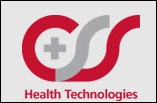
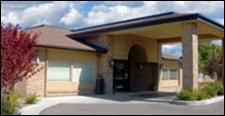

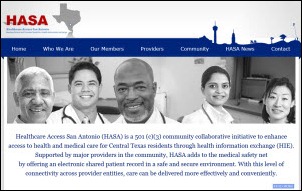
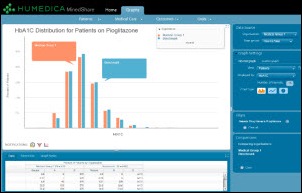
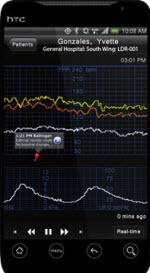
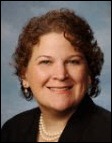
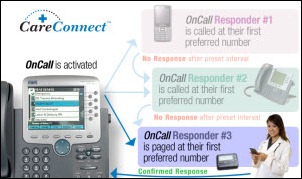
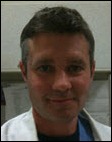


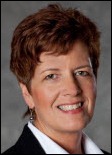


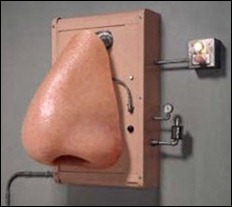
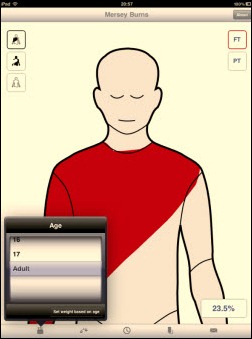
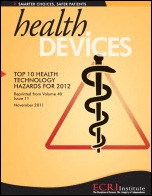
Re: Cleveland Clinic. A healthcare market research [… and Epic analysis]
This isn’t perchance the same company that Cleveland Clinic has an ownership / investment stake in, is it?
What a coincidence that would be Olly 😉 Maybe you have a few shares too?
re: the doc whose EP money went to Kaiser even though she never worked there – why would the feds not alert the DOJ for possible fraud here? Seems to me that if Kaiser attested to MU for someone who never worked there and took her money, it’s more than just giving her back her eligibility to get $22K. It opens a need for a full audit of Kaiser to figure out why they claimed money on her behalf and how many other cases of the same thing happened there. Am I off base here?
Re: Henry Ford – So (per HIMSS Analaytics) they have 3,250 physicians and just under 3,000 licensed beds. Does anyone else have a queezy feeling when you work out that means each of those doctors or beds have to generate over $110,000 in net revenue just to pay for their proposed EPIC install? I just hope those construction workers in Verona and the vibrant artists community appreciate where all that money is coming from to feed them. I’m sure the fine people at Ford (32% Payer) and State of Michigan Medicaid (30% Payer) appreciate the sacrifice they are being asked to make.
And people say healthcare in Michigan isn’t broken?
Relatively, the boys and girls at UMC Nevada did some good haggling to get ‘Mystery Vendor from Atlanta’ down to $31m which at 567 beds brings them in at half that cost per bed ($53,000).
Yes I know aples aren’t oranges, transformation services, and the term of the contracts..blah blah blah.
Hey, Missing Money, this is the person who made the original report. Right now, we are willing to attribute the mistake to stupidity and not malice. There is another physician with the same name in CA and we think their NPIs were switched. The real doc is in the mid west and I don’t think has ever spoken to anyone from kaiser in her life.
The real problem so far is trying to find ANYONE at Kaiser to speak to. Advice would be greatly appreciated. The email from the Feds is so slim with information, I actually thought it was spam at first.
I expect that the fraud card will be played if we don’t get resolution soon.
I also know of two other practices where formerly employed physicians have discovered that their former employers filed their names and collected In one instance, it’s a clear employment contract issue (i.e., too bad). In the other…the doc never used an EHR. Whoops.
Finally, Inga: bet nickname for me yet. Well done!
Re: AMA Votes Against ICD-10 Implementation
I have great fears that this will only make an already bad situation worse. I am working a project where clinical managers are already telling us that their providers cannot be expected to spend more than two weeks gearing up for ICD-10. Unless the AMA has a realistic expectation that their vote will actually delay ICD-10, I would argue that their vote is only excusing future “bad behavior” on the part of clinicians who don’t want to implement and are expecting a sort of “Psychic Friends Network” methodology for capturing the additional clinical data required for coding ICD-10. As an aside, will the AMA publish ICD-10 manuals as they do for ICD-9, or could there also be a financial incentive for the AMA itself to remain longer on ICD-9?
In re: Not in Kansas and the back hand slap to National Health Service–All health care is local. One could find just as many American health care providers with bad parking and rennovations. Nonetheless, bottom line and quality for the greatest number favor NHS oover America’s non-system and highly skewed market.
Regarding the NISTIR 7741 Usability document:
It’s fine to have formal structure and trained experts doing usability testing. But we need to get away from the brightly-lighted, quiet laboratory with a single clinician in front of a single screen doing a single workflow (p. 49). We need to find a way to get the software being tested running in a train environment in a real clinical setting and have the expert testor mimic clinical workflow by shadowing a real clinician in a real setting (HIPAA be damned). Constant interruptions; jumping from patient to patient; totally disjointed tasks; intermittent crises…real clinical workflow is essentially a series of tweets requiring interaction, all from disparate sources. It’s not a script.
re:Not in Kansas vis-a-vis NHS –
Well, pretty buildings and ample parking are nice and all, unless you can’t afford to even go get a checkup for your kids because your health insurance company employer doesn’t cover anything.
I’ll take shabby looking and free over pretty and unaffordable any day.
“While some American patients might envy the cost of NHS care (it’s free),”
Do the doctors and nurses work for free? Do the hospitals and clinics not pay for their electricity? Were all the EHR systems installed at no cost? NHS care is far from free, it is just that the costs are not directly paid by patients. Patients pay for care via income, sales and other taxes.
Re: Cleveland Clinic:
It isn’t shocking that would happen. Reporting was on the backburner for Epic for a long time, and still is for the most part. Only recently have they taken it seriously, and with their outdated data model which didn’t take reporting into account in the first place, this shouldn’t shock anyone. Unless they devote a lot of resources into it, reporting will always be a weakness; Epic continues to put more into making views and stored procedures, and this only makes it worse by not realizing the root cause is the data model itself. No matter how many stored procedures and views they release, it will never cover every need, and the problems will exist until they solve the data model issue itself.
Olly Oxen/Cleveland Clinic
This discussion is getting interesting! TPD had a discussion with Epic’s Carl Dvorak in 2008 about data mining for institutions, and was told that Epic has an unique solution for data mining for each client and needs no outside help. Now, three years later no one has come forward saying Epic has provided a suitable solution for data views for each client. As for the Cleveland Clinic, TPD designed the first Windows/UNIX PACS for Cardiology, and had it installed there for their Cath Labs as a first customer.
Epic has begun delivering on that promise. They have published views for each of the major disease states and also for some common business needs as well. And, some in combination.
Also, Epic sites are dropping their custom data warehouse plans and dropping out of selection processes for EDWs in some serious numbers to begin tracking with Epic.
Not to mention that most of the early attesting MU sites were Epic on both the inpatient and outpatient side.
Not so fast TPD
Thanks for updating us! It’s nice to see that Epic’s data mining solutions are beginning to satisfy end users. Still, there is much more that needs to be done to gain a robust knowledge base for clinical practice.
TPD!
Dropping the custom EDW plan. Too expensive and more of a project than a product. The tools vendors want us to believe they have magic but it is really just seting up indexes, views and datamarts tht we need.
Epic may not be perfect but they accomplished more in a release than aggressive sites worked out in several years.
Re. The NHS comments – great if you are comparing hotels but overall quality of care on UK ranks higher (commonwealth fund report) and for about 8.5% GDP and 4k per capita va IS 17% and 7.5k!
Why is Farzad Mostashari spending time at a NextGen conference? Shouldn’t he be working on defining stage 2?